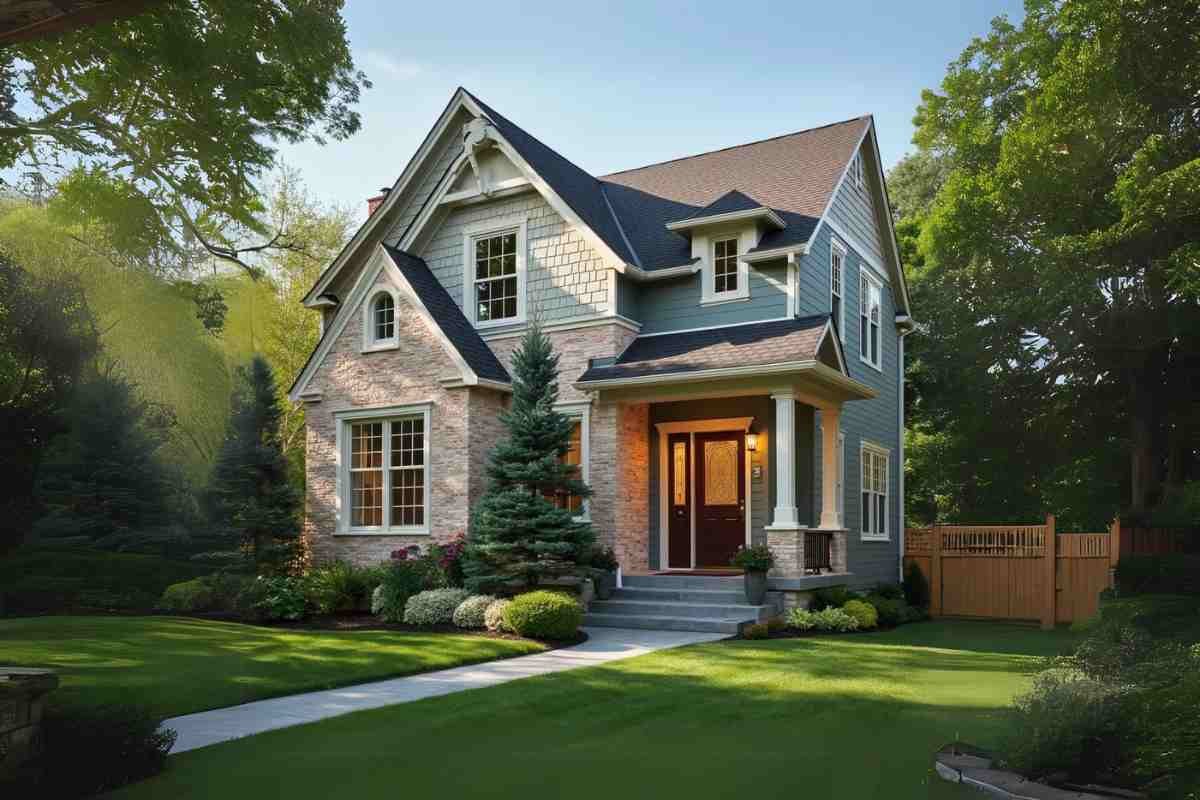In the world of home improvement, the right guidance can make all the difference between a successful project and a frustrating experience. Whether you’re planning a complete renovation, a DIY project, or simply looking for ways to increase your home’s value, Faqlogin.com Home Improvement is your go-to resource.
From insightful tips to detailed guides on home upgrades, Faqlogin.com brings you the best advice to transform your living spaces with confidence. But why should you trust them, and how can their resources help you achieve your home improvement goals? In this detailed article, we’ll dive deep into everything you need to know about home improvement, how Faqlogin.com can help, and provide actionable steps to start your next project.
Why Faqlogin.com Home Improvement?
When it comes to home improvement, Faqlogin.com is not just another website. They are a trusted source for homeowners and DIY enthusiasts who want to learn how to enhance their living spaces without the guesswork. Here’s why Faqlogin.com Home Improvement is your best resource:
1. Expertise in Home Improvement
Faqlogin.com brings together expert advice from seasoned professionals in various areas of home improvement. From kitchen renovations to bathroom upgrades, flooring, and exterior projects, you’ll find expert tips that ensure every project is completed to perfection.
2. Step-by-Step Guides
Home improvement can be intimidating, especially if you’re new to DIY projects or renovations. Faqlogin.com provides step-by-step guides for every project, breaking down complex tasks into easy-to-follow instructions. Whether you’re replacing your kitchen backsplash or installing new light fixtures, you’ll have the support you need from start to finish.
3. Budget-Friendly Solutions
One of the main concerns in home improvement is cost. Faqlogin.com Home Improvement ensures that no matter your budget, you’ll find options to suit your financial plan. They provide cost-effective solutions and alternatives that don’t compromise on quality, helping you achieve professional results without overspending.
4. Wide Range of Topics
From energy-efficient home upgrades to creating stunning interiors, Faqlogin.com covers a wide range of home improvement topics. This makes it easier for homeowners to find specific information and inspiration for any project, no matter how big or small.
How to Use Faqlogin.com for Your Home Improvement Projects
Whether you’re embarking on a DIY journey or hiring professionals for a renovation, Faqlogin.com Home Improvement offers valuable resources to ensure your project is a success. Let’s walk through how you can use this platform to get the most out of your home improvement efforts.
Explore Different Categories
Start by browsing through the various categories on Faqlogin.com. The website is organized by project type, making it easy to find the specific home improvement tips you need. Popular categories include:
- Kitchen and Bathroom Remodels: Learn how to transform these essential spaces with updated fixtures, modern designs, and storage solutions.
- Interior Design: Discover ways to refresh your living spaces with new paint, furniture arrangement, and décor ideas.
- Energy Efficiency: Save money and reduce your carbon footprint with smart home improvements like installing solar panels or upgrading your insulation.
- Outdoor Projects: Boost your home’s curb appeal with landscaping, fencing, and outdoor lighting ideas.
Follow the Step-by-Step Guides
Each project guide on Faqlogin.com Home Improvement is structured to be easy to follow, even for beginners. These guides are packed with detailed steps, material lists, and estimated timeframes to help you plan accordingly. For example, if you’re looking to install a new flooring option, the guide will outline:
- Materials required (e.g., laminate, hardwood, tiles)
- Preparation steps (clearing the area, removing old flooring)
- Installation techniques (measuring, cutting, and fitting)
- Finishing touches (applying sealants or baseboards)
Budget Planning
One of the most valuable features of Faqlogin.com Home Improvement is its focus on budget-friendly solutions. Each guide often includes cost estimates and tips for saving money, such as sourcing affordable materials or opting for DIY-friendly products. Additionally, Faqlogin.com offers articles on setting realistic budgets and understanding the potential return on investment (ROI) for various home improvement projects.
Visual Inspiration
Before starting a home improvement project, it’s important to have a clear vision. Faqlogin.com includes photo galleries and design inspiration to help you visualize your dream space. Whether you’re looking to modernize your kitchen or create a cozy outdoor retreat, the visual resources available on the site will spark your creativity.
Connect with Professionals
While Faqlogin.com Home Improvement empowers homeowners with DIY knowledge, there are times when hiring a professional is the better option. The website includes links to trusted contractors, electricians, and plumbers who can assist with more complex projects. This means you can have peace of mind knowing that your project will be handled with expert care when needed.
Understanding Home Value
What is Home Value and Why It Matters
Home value refers to the market worth of your property, determined by various factors like location, condition, and market trends. Knowing your home’s value is essential whether you’re planning to sell, refinance, or simply want to make informed decisions about home improvements. A higher home value means better returns on investment and increased equity.
Factors Influencing Home Value
Several elements contribute to your home’s value:
- Location: Being close to schools, parks, and amenities can greatly enhance property value.
- Market Trends: The current real estate market can affect property prices.
- Property Condition: Well-maintained homes with modern features tend to have higher values.
- Size and Layout: Larger homes with functional layouts are generally more valuable.
Understanding these factors can help you make smarter choices about which improvements will offer the best returns.
The Importance of Home Improvement
Undertaking home improvement projects can significantly elevate the value of your property. Investing in critical areas like the kitchen, bathroom, and exterior can make your home more appealing to potential buyers and increase its market worth. Strategic improvements enhance your living experience and ensure that you get the best possible price if you decide to sell.
Focusing on suitable projects can maximize your investment and enjoy a more comfortable, valuable home.
Key Home Improvement Areas to Focus On
A. Curb Appeal
Landscaping: A well-maintained garden can make a great first impression. Simple tasks like lawn mowing, trimming bushes, and planting colorful flowers can instantly boost your home’s curb appeal.
Exterior Paint and Siding: Fresh paint or new siding can give your home a modern look. Opt for neutral colors that attract a wide variety of potential buyers.
Front Door and Windows: Upgrading your front windows can enhance security and aesthetics. Consider energy-efficient windows and a stylish, sturdy front door.
B. Kitchen Upgrades
Modern Appliances: Updating to energy-efficient, stainless steel appliances can make your kitchen more functional and attractive.
Countertops and Cabinets: Granite or quartz countertops and modern cabinets can significantly enhance your kitchen’s appeal. Opt for timeless designs that won’t go out of style.
Lighting and Fixtures: Good lighting can make a big difference. Install bright, energy-efficient lights and stylish fixtures to create a welcoming atmosphere.
C. Bathroom Renovations
Updated Fixtures and Fittings: Replacing old faucets, showerheads, and toilets with modern, water-efficient versions can give your bathroom a fresh look.
Tile and Flooring: New tiles and flooring can transform the space. Select long-lasting, water-resistant materials such as ceramic or porcelain tiles.
Adding Extra Bathrooms: If you have space, adding an extra bathroom can significantly increase your home’s value, especially in older homes with fewer bathrooms.
D. Energy Efficiency
Insulation and Windows: Proper insulation and energy-efficient windows can reduce energy costs and make your home more comfortable year-round.
Energy-Efficient Appliances: Upgrading to energy-efficient appliances can save money on utility bills and appeal to eco-conscious buyers.
Solar Panels: Installing solar panels is a great way to increase energy efficiency and reduce long-term energy costs. It’s also a strong selling point for environmentally conscious buyers.
E. Smart Home Technology
Security Systems: Modern security systems can offer peace of mind and increase your home’s value. Look for systems that include cameras, alarms, and smart locks.
Smart Thermostats: These devices can help you save on energy bills by optimizing heating and cooling. They also infuse your home with a contemporary flair.
Home Automation: Smart lighting, plugs, and voice-activated assistants can make your home more convenient and appealing to tech-savvy buyers.
Focusing on these key areas can help you make strategic improvements that enhance your living experience and significantly boost your home’s value.
Budget-Friendly Home Improvement Tips

DIY Projects
Simple Painting: A fresh coat of paint can transform any room. Opt for neutral colors to attract a broad spectrum of tastes. Painting is a cost-effective DIY project that can make a significant impact.
Minor Landscaping: You don’t need a professional to improve your garden. Planting flowers, adding mulch, and trimming bushes are easy tasks that can enhance your home’s curb appeal.
Updating Fixtures: Swapping out old light fixtures, faucets, and cabinet handles for modern ones can give your home a quick and affordable facelift.
Prioritizing Improvements
Focus on High-ROI Projects: Concentrate on improvements that offer the best return on investment. Kitchens and bathrooms are often the best places to start, as they add the most value.
Tackle One Room at a Time: Instead of spreading your budget thin across multiple projects, focus on completing one room at a time. This approach allows you to see progress and manage costs more effectively.
Address Essential Repairs First: Before making cosmetic upgrades, fix any essential repairs, such as leaky roofs, faulty wiring, or plumbing issues. These repairs are crucial for maintaining your home’s value.
Repurposing and Recycling
Use Existing Materials: Look around your home for materials that can be repurposed. Old wood can be turned into shelves, and leftover paint can be used for accent walls.
Shop Secondhand: Thrift stores and online marketplaces can be treasure troves for affordable home improvement materials. You can often find gently used items that are perfect for your projects.
DIY Decor: Create your home decor items. From handmade curtains to custom wall art, DIY decor can add a personal touch to your home without costing a fortune.
By following these budget-friendly tips, you can make meaningful improvements to your home without breaking the bank. Small changes can add up to a significant increase in home value, making your property more appealing to potential buyers.
Step-by-Step Guide: Your First DIY Home Improvement Project
Now that you understand how Faqlogin.com Home Improvement can be a valuable resource, let’s dive into a step-by-step guide for a beginner-friendly DIY project: Updating Your Kitchen Cabinets.
Planning and Preparation
Before you begin any home improvement project, it’s essential to plan thoroughly. In this case, decide whether you want to reface, repaint, or replace your cabinets. For a budget-friendly option, repainting or refacing is a great way to refresh your kitchen’s look without a complete overhaul.
- Materials: Sandpaper, paint, primer, cabinet hardware, screws, screwdriver, masking tape
- Estimated time: 2–3 days
Remove Cabinet Doors and Hardware
Once your materials are gathered, begin by removing the cabinet doors, handles, and hinges. Use a screwdriver to carefully take off the hardware, and place the screws in a safe spot so they don’t get lost.
Sand and Prime
Next, use sandpaper to gently sand the cabinet surfaces. This will help the primer adhere better and ensure a smooth, professional finish. Once sanded, wipe the cabinets clean to remove any dust. Apply a coat of primer and let it dry completely.
Painting the Cabinets
Once the primer is dry, you can begin painting. Use a high-quality paint specifically designed for cabinets to get the best results. Apply at least two coats, allowing each coat to dry fully before adding the next.
Reattach Doors and Hardware
Once your paint has dried, reattach the cabinet doors and hardware. If you want a modern update, consider replacing your old hardware with sleek new handles or knobs. This simple change can make a big impact on your kitchen’s overall look.
Final Touches
To complete your kitchen upgrade, you may want to add some additional touches, like new backsplash tiles or modern lighting fixtures. These extra details can further enhance your kitchen’s fresh, updated appearance.
The Benefits of Home Improvement: Why It’s Worth the Investment
Improving your home isn’t just about aesthetics — it can also have long-lasting benefits, both financially and in terms of lifestyle. Let’s look at some of the major advantages of home improvement:
Increase Property Value
One of the most significant benefits of home improvement projects is the potential to increase your home’s resale value. Simple projects like upgrading your kitchen or bathroom can yield a high return on investment, making your home more appealing to future buyers.
Enhanced Functionality
Whether you’re remodeling your kitchen to improve workflow or updating your living room for better entertainment, home improvements can make your home more functional and comfortable. This ensures that your home not only looks great but also meets the practical needs of your daily life.
Energy Efficiency
With rising energy costs, making your home more energy-efficient is becoming increasingly important. Installing energy-efficient windows, upgrading insulation, and adding solar panels are just a few ways to reduce your energy bills. Faqlogin.com Home Improvement offers many guides on eco-friendly upgrades that can save you money in the long run.
Personal Satisfaction
There’s nothing quite like the feeling of completing a home improvement project and enjoying the results. Whether it’s the satisfaction of seeing your vision come to life or the joy of living in a beautifully updated space, home improvements provide personal fulfillment that makes the effort worthwhile.
How Faqlogin.com Supports Long-Term Home Improvement Success
Home improvement is not a one-time endeavor. Homes constantly evolve, and Faqlogin.com Home Improvement ensures that you are always equipped with the latest information and best practices for maintaining and upgrading your home.
Regular Updates on New Trends
The home improvement industry is constantly evolving, with new trends, materials, and technologies emerging every year. Faqlogin.com keeps you updated on the latest trends, from modern design styles to innovative home technologies that can make your space smarter and more efficient.
Ongoing Maintenance Tips
Once a project is complete, maintaining your home is key to preserving its value. Faqlogin.com Home Improvement offers guides on regular maintenance, such as how to clean and care for new floors, maintain energy-efficient systems, and ensure that your home remains in excellent condition over time.
Community Support
One of the unique features of Faqlogin.com is its community-driven approach. You can engage with other homeowners and DIY enthusiasts by sharing experiences, asking questions, and offering tips. This creates a supportive environment where everyone can learn and grow together.
Common Mistakes to Avoid
Over-Improving for the Neighborhood
Know Your Market: Understanding the value range of homes in your neighborhood is essential. Making improvements that far exceed the standard of nearby properties can lead to over-improving, where you won’t recoup your investment because your home is priced too high for the area.
Stay Consistent: Aim for upgrades consistent with other homes in your neighborhood. This ensures that your home remains competitively priced and attractive to potential buyers.
Ignoring Necessary Repairs
Fix Structural Issues First: Before making aesthetic upgrades, address any structural problems, such as a leaky roof, faulty plumbing, or electrical issues. Neglecting these can lead to more significant, more expensive problems down the line and can deter buyers.
Regular Maintenance: Perform maintenance tasks like cleaning gutters, servicing HVAC systems, and checking for mold. These small efforts can prevent significant issues and maintain your home’s value.
Choosing Trendy Over Timeless
Opt for Classic Designs: While following the latest design trends might be tempting, they can quickly become outdated. Choose timeless designs that will appeal to buyers for years to come. For example, classic styles in kitchens and bathrooms have a broader appeal.
Neutral Colors: Stick to neutral colors for walls, floors, and major fixtures. Neutral tones create a blank canvas that allows potential buyers to envision their style in the space.
By avoiding these common mistakes, you can make smarter home improvement decisions to enhance your home’s value and appeal. Staying mindful of your neighborhood’s standards, addressing necessary repairs, and opting for timeless designs will ensure that your investments pay off in the long run.
Case Studies and Success Stories
Real-Life Examples

Jane’s Kitchen Transformation: Jane wanted to update her outdated kitchen without spending a fortune. She focused on painting her cabinets, updating the hardware, and installing new countertops. With a budget of just $5,000, Jane’s kitchen went from drab to fab, and she saw a significant increase in her home’s value when she sold it.

Mike’s Curb Appeal Makeover: Mike decided to enhance his home’s curb appeal by investing in landscaping, a new front door, and fresh exterior paint. These changes made his home more attractive and increased its market value by 10%. His home sold quickly and for a higher price than similar properties in his neighbourhood.
Before and After Comparisons

Sarah’s Bathroom Renovation: Before the renovation, Sarah’s bathroom was small and outdated. She invested in modern fixtures, new tiles, and a more oversized vanity. The transformation was stunning, and the new bathroom added significant value to her home. The “before and after” photos clearly show the dramatic improvement.
Tom’s Energy Efficiency Upgrades: Tom’s home was costing him a fortune in energy bills. He invested in new insulation, energy-efficient windows, and a smart thermostat. Not only did these upgrades make his home more comfortable, but they also reduced his energy costs and increased his home’s value. The “before and after” energy bills highlighted the savings and added appeal to potential buyers.
Sharing these real-life examples and before-and-after comparisons shows how strategic home improvements can make a significant difference. These success stories demonstrate that you can enhance your home’s value and appeal without breaking the bank with thoughtful planning and wise investments.
Conclusion
Home improvement is an exciting and rewarding process, and with the right guidance from Faqlogin.com Home Improvement, you can achieve your dream home with confidence. From expert advice and step-by-step guides to budget-friendly solutions and professional tips, Faqlogin.com has everything you need to get started on your next project.
Whether you’re planning a small DIY task or a large-scale renovation, the resources available on Faqlogin.com are designed to empower you every step of the way. So, what are you waiting for? Start exploring Faqlogin.com Home Improvement today and take the first step towards transforming your home.
Whether planning a major renovation or minor DIY updates, every improvement counts. Remember to visit Faqlogin.com for expert tips, resources, and inspiration to help you make informed decisions and achieve the best results.
Ready to improve your home? Visit Faqlogin.com now and discover a world of expert tips, guides, and solutions for all your home improvement needs!
FAQs About Faqlogin.com Home Improvement
1. What is Faqlogin.com Home Improvement?
Faqlogin.com Home Improvement is an online platform that provides expert tips, step-by-step guides, and budget-friendly solutions to help homeowners enhance and upgrade their living spaces.
2. How can Faqlogin.com help with DIY home improvement projects?
Faqlogin.com offers detailed step-by-step guides for various DIY home improvement projects, from kitchen remodels to landscaping, making it easy for beginners to follow along and complete tasks successfully.
3. What kind of home improvement topics does Faqlogin.com cover?
Faqlogin.com covers a wide range of topics, including kitchen and bathroom remodels, energy efficiency upgrades, interior design tips, outdoor projects, and much more.
4. Does Faqlogin.com provide advice on budgeting for home improvement?
Yes, Faqlogin.com offers cost estimates and budget-friendly solutions for various home improvement projects, helping you save money while achieving professional results.
5. Are there professional contractors recommended by Faqlogin.com?
While Faqlogin.com empowers homeowners to handle DIY projects, they also provide links to trusted professionals for more complex tasks that may require expert assistance.
6. How often is new content added to Faqlogin.com?
Faqlogin.com regularly updates its content with new trends, technologies, and design ideas, ensuring homeowners have access to the latest information in home improvement.
7. Can I find eco-friendly home improvement tips on Faqlogin.com?
Yes, Faqlogin.com offers a variety of guides on energy-efficient and eco-friendly upgrades, such as installing solar panels, upgrading insulation, and choosing sustainable materials.
8. Is Faqlogin.com useful for both small and large home improvement projects?
Absolutely! Whether you’re undertaking a minor DIY task or a major renovation, Faqlogin.com provides relevant tips and resources for projects of all sizes.
9. Does Faqlogin.com offer advice on increasing home value?
Yes, Faqlogin.com includes advice on home improvement projects that can significantly boost your home’s resale value, such as kitchen upgrades, bathroom remodels, and curb appeal enhancements.
10. How can I get started with my first home improvement project using Faqlogin.com?
Simply visit Faqlogin.com, explore the various categories, choose a project guide that aligns with your needs, and follow the step-by-step instructions to get started!





